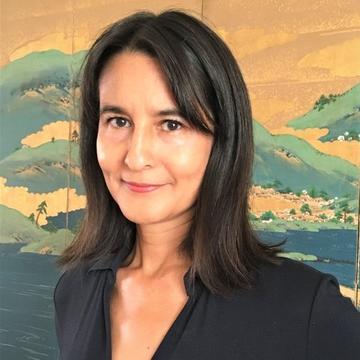Leslie Kenny, founder and CEO, Oxford Healthspan

Leslie is the Founder and CEO of Oxford Healthspan, a nutraceutical company based on Oxford research into healthy aging compounds which can naturally slow down the effects of aging. Oxford Healthspan bridges the gap between Eastern wisdom and Western science in the longevity space.
What is your background? What made you decide to get involved in supporting entrepreneurs?
Although I had a professional banking career in Switzerland and also worked for the Walt Disney Company straight out of business school, my entrepreneurial career actually began in 1999 when I launched my own online matchmaking company in China and Southeast Asia. It was very exciting pioneering an entirely new space, but also exhausting. By the time I exited at age 39 – coincidentally the same age that my father passed away — I was diagnosed with two auto-immune conditions, lupus and rheumatoid-arthritis. They told me there was no cure for lupus and that people would usually live for around 5 years after diagnosis. But they said that the pain and inflammation that accompanies RA could be managed and handed me a large box full of syringes filled with medicine. These drugs would work for about 18 months, at which point I would likely need to cycle on to a different one for another year or so ad infinitum. And I really just found both answers to my diagnoses unacceptable. Since there was no cure to my lupus, I decided there weren’t any downsides in me trying non-prescribed modalities, stress reducing lifestyle interventions, an anti-inflammatory diet, and Intravenous Immunoglobulin (IVIg) therapy. I also asked my doctor if the tests might be wrong and whether I could come back in a few months and re-test just in case. Fast forward to that second test, after I had really cleaned up my lifestyle, and I magically no longer had sky high cytokine, TNF alpha or C-reactive protein levels. My body had literally reprogrammed itself to be healthy. That is when my curiosity in healthcare was piqued. As an auto-immune disease survivor, I just wanted to look for alternative solutions to difficult healthcare problems and after helping some university spinouts raise money with more conventional pharma patents, I decided to commercialise our current product. It’s a huge leap of faith because it cannot be patented, but is based on a natural compound that already exists in the body. Nevertheless, the scientific research on it, showing that it is essential to the body’s cellular renewal process by triggering autophagy, was phenomenal. It really frustrated me that I couldn’t get this product to my mother in US and probably wouldn’t be able to for some time because it lacked patentability. After all, our bodies couldn’t care less whether or not a compound is patented, so long as it works! Helping bring these more traditional age slowing or bettering solutions such as Primeadine spermidine to a growing population of older consumers like me is definitely my Ikigai, my sense of purpose.

Entrepreneurship is taking a financial risk to set up a business for which the entrepreneur sees great need. But to me it is also about something bigger than yourself, making a difference and a contribution in addition to sharing in the financial upside.
How and when did you know your idea was good enough to develop it?
There was a paper in Nature in May 2020 ‘The quest to slow ageing through drug discovery’ by Linda Partridge et al which showed a chart of pharmaceutical drugs, including spermidine, which is in our product, Primeadine, plotted against the nine hallmarks of aging. They showed that spermidine inhibited five of these nine hallmarks, and we later discovered that they inhibit a sixth and potentially even more, if not all nine hallmarks. I looked at that paper and thought “This is a completely natural and safe compound already in the food supply that we just don’t get enough of, especially as we age, and no one in the US is going to try to develop this because it can’t be patented.” It’s a very narrow niche and I realised that it was therefore an opportunity.
What would you say are the top 3 skills that needed to be a successful entrepreneur? Why?
A successful entrepreneur needs to be resourceful, agile, and able to execute quickly, as was emphasised during the Covid-19 pandemic. I almost can’t believe that we only manufactured in late June and launched in October 2020, all during lockdown.
What is your favourite part of being an entrepreneur?
Personally I love connecting with our customers. Our whole team interacts with our customers because we have had to go directly to market through an e-commerce site rather than retail due to Covid. It was probably the best thing that could have happened to us because we are digital natives rather than having to transition from retail to e-commerce.
What individual, company or organization inspires you most? Why?
I am really inspired by Yves Chouinard, the founder of Patagonia, because we too feel we have a social responsibility. If I think back to how business was taught to me at Harvard 25 years ago, none of that was present. But now there is much more focus on stakeholders and the wider environment in which a company operates and what it contributes to. It’s wonderful to see this more holistic view of business gain traction with investors.
What would you say have been some of your mistakes, failures or lessons learned as an entrepreneur?
My most recent mistake was proceeding with a fulfilment partner which I never really wanted to work with. We had so many pre-orders we wanted to fulfil in the US that I didn’t wait an additional two weeks to work with another partner, which would have been more suitable long-term, so I settled for the sub-optimal solution. Big mistake! I would definitely recommend taking short-term pain for long-term gain!
How have you funded your ideas?
We have completely bootstrapped and have only funded through friends and family so far.
What is good about being an entrepreneur in Oxfordshire? Bad?
We haven’t really tapped into the Oxford ecosystem because I am not an Oxford alumna or member of staff and it was unclear what might be available to us.
If a new entrepreneur or startup came to you looking for entrepreneurship resources, where would you send them?
To an angel network so they can get properly capitalised. It’s so important to not have the constant funding pressure. You will always need more money than you think. After that, I would send them to the British Library.
Have you faced any challenges as a woman entrepreneur? If so, how have you overcome them?
I had a few challenges in my previous online matchmaking company but this time around I can’t recall any specific challenges that weren’t Covid related. Plus my name is spelt like a man’s, so if someone were to see it, at least here in Britain, they would assume I’m a man!
What resources would you recommend for other women?
Look for any community resources, such as online message boards or offline communities, which might provide you with help and support. Educational, social and religious networks can also be a source of support. We would also welcome collaboration and partnership with other women-led businesses that were interested.
How could institutions such as the University of Oxford better support women entrepreneurs?
I really admire the Oxford Foundry, an initiative of Professor Peter Tufano, Dean of the Said Business School and former HBS professor. They provide startup organisations with workspace, mentoring, practical advice and a sense of community, but it might be nice to have a more women friendly wing that could provide advice on things like childcare, eldercare, even egg freezing for those who want the option of delaying motherhood. And then some advice to women on pitching to investors – men are used to communicating in a specific way which is not usually how women communicate. This might explain why so few women-led companies get VC backing.
Do you have any advice specifically for other women who want to be entrepreneurs?
Be authentic, look for and fulfil your Ikigai (sense of purpose), because at the end of the day you can quit a job but as an entrepreneur you can never leave work and are fully accountable for the success of your company, so make sure that you love it and that it truly is your raison d’etre. I would also recommend scheduling personal and family time before anything else in your timetable, otherwise you will never find the time for it!
Share this
More news



